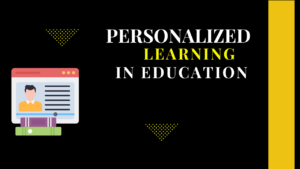
Introduction
Developing strong English reading skills can be a challenging but rewarding process. It is important for academic and professional success, as well as personal growth and enjoyment. Reading allows us to expand our knowledge and understanding of the world. It can also be a relaxing and enjoyable hobby. In this article, we will provide you with some important tips to improve your reading skills.
Set aside dedicated time for reading
Make reading a regular part of your routine by setting aside dedicated time for it. This can help you get into the habit of reading regularly and make it easier to find time for it.
Setting aside dedicated time for reading can be an effective way to make reading a regular part of your routine. Here are a few ways to do this:
- Choose a specific time of day
Choose a time of day that works best for you to do your reading. This could be first thing in the morning, before bed, or any other time that works for you.
- Set a goal
Set a goal for how much you want to read each day or week. This could be a certain number of pages or a specific amount of time.
- Find a quiet place
Find a quiet place to do your reading, away from distractions like TVs, phones, or other people.
- Get comfortable
Make sure you are comfortable while you read. This could mean finding a comfortable chair or couch or getting cozy with a blanket and a warm drink.
- Turn off distractions
Turn off any distractions, like your phone or email notifications, so you can focus on your reading.
- Make a plan

Decide what you want to read beforehand, so you can plan your reading time accordingly. This could involve choosing a book or article to read, or setting aside time for reading a specific chapter in a textbook.
By setting aside dedicated time for reading and following these tips, you can make reading a regular part of your routine and improve your reading skills over time.
Choose material that interests you
Choose books, articles, or other reading material that interests you. This will make reading more enjoyable and help you stay engaged with the material.
Choosing reading material that interests you can be a great way to stay engaged with what you are reading and make the process more enjoyable. Here are a few tips for choosing reading material that interests you:
- Think about your interests
What topics or subjects do you enjoy? Look for reading material that aligns with your interests. This could be fiction or non-fiction, a magazine or newspaper, or a textbook for a class you are taking.
- Explore different genres
Don’t be afraid to try different genres or formats. You might find that you enjoy reading a particular type of book or article more than others.
- Seek recommendations
Ask friends, family, or a librarian for recommendations based on your interests. They may be able to suggest books or articles that you might enjoy.
- Consider your goals
If you are reading for a specific purpose, such as to improve your vocabulary or to learn more about a particular subject, consider choosing reading material that will help you achieve your goals.
By choosing reading material that interests you, you are more likely to stay engaged and motivated to read. This can help you improve your reading skills and get more enjoyment out of the process.
Take breaks
It’s important to take breaks while reading to give your brain time to process and absorb the information. Taking breaks can also help you stay focused and avoid burnout.
Taking breaks while reading can be an important way to give your brain time to process and absorb the information you are reading. Here are a few tips for taking breaks while reading:
- Take breaks regularly
Set a timer or an alarm to remind you to take breaks at regular intervals. This could be every 20-30 minutes, or at some other interval that works for you.
- Step away from your reading material
During your breaks, step away from your reading material and do something else for a few minutes. This could involve stretching, taking a short walk, or doing some other activity.
- Reflect on what you’ve read
During your breaks, take a few minutes to reflect on what you’ve read so far. This could involve summarizing the main points in your own words or asking yourself questions about the material.
- Avoid distractions
Try to avoid distractions during your breaks, such as checking your phone or email. This can help you stay focused and avoid burnout.
Taking breaks while reading can help you stay focused and avoid burnout, and can also help you better understand and retain the material. By setting aside dedicated time for breaks, you can make sure you are giving your brain the time it needs to process and absorb the information you are reading.
Annotate and take notes
As you read, highlight or underline important points and take notes on key concepts or ideas. This will help you retain and understand the material better.
Annotating and taking notes while reading can be an effective way to engage with the material and improve your understanding and retention of the material. Here are a few tips for annotating and taking notes while reading:
- Highlight or underline key points
As you read, highlight or underline important points or key concepts. This can help you identify the main ideas and better understand the material.
- Take notes
Take notes on key points or ideas as you read. This could involve writing a summary of the main points in your own words, or jotting down any questions or comments you have about the material.

- Use abbreviations or symbols
To save time, you can use abbreviations or symbols to annotate or take notes. For example, you might use a “+” sign to indicate an idea you agree with, or a “?” to indicate something you don’t understand.
- Review your notes regularly
Regularly review your notes and annotations to reinforce your understanding of the material. This could involve rereading the highlighted or underlined sections, or summarizing your notes in your own words.
Annotating and taking notes while reading can help you better understand and retain the material, and can also provide a useful reference for later review. By regularly reviewing your notes, you can reinforce your understanding of the material and prepare for exams or other assessments.
Practice active reading
Active reading involves actively engaging with the material you are reading, such as by asking yourself questions or summarizing the main points in your own words. This can help you better understand and retain the information.
Active reading involves actively engaging with the material you are reading, rather than just passively reading through it. Here are a few ways to practice active reading:
- Ask yourself questions
As you read, ask yourself questions about the material. This could involve asking yourself what the main points are, or what the author’s main argument is.
- Summarize the main points
Try summarizing the main points of the material in your own words as you read. This can help you better understand and retain the information.
- Look up unfamiliar words
If you come across a word you don’t know, look it up in a dictionary or online to get a better understanding of the material.
- Take notes
Take notes on key points or ideas as you read. This could involve writing a summary of the main points in your own words, or jotting down any questions or comments you have about the material.
- Engage with the material
Engage with the material by asking yourself how it relates to your own experiences or other things you have read. This can help you better understand and retain the information.
By actively engaging with the material you are reading, you can improve your understanding and retention of the information. This can help you get more out of your reading and make the process more rewarding.
Read out loud
Reading out loud can help you improve your reading speed and comprehension. It can also help you catch mistakes or misunderstandings that you might have missed when reading silently.
Reading out loud is a technique where a person reads text aloud, typically in order to improve their comprehension and retention of the material. It can also be used as a way to practice speaking and pronunciation skills or to share the material with others who may not have access to the written text.
There are a few benefits to reading out loud:
- Improved comprehension
Reading out loud can help you better understand the material you are reading, as it forces you to actively process the information rather than just passively reading it.
- Enhanced retention
When you read out loud, you are engaging multiple senses (sight, sound, and touch) which can help you remember the material more effectively.
- Practice speaking and pronunciation skills
Reading out loud can help you improve your speaking and pronunciation skills, especially if you are reading a text in a foreign language.
- Sharing the material with others
Reading out loud is a useful technique for sharing written material with others who may not have access to it, such as when reading to a group of people or to a child.
There are a few tips to keep in mind when reading out loud:
- Read slowly and clearly
It’s important to take your time and pronounce words correctly when reading out loud.
- Take breaks
If you are reading a long text, it’s important to take breaks to rest your voice and avoid straining it.
- Use expression
Adding inflection and expression to your voice can help make the material more engaging and easier to understand.
- Practice
The more you practice reading out loud, the more comfortable and confident you will become.
Discuss what you have read
Discussing what you’ve read with others can help you further understand and retain the material. It can also be a great way to engage with the material in a different way and gain new perspectives.
It is important to discuss what you have read in order to better understand and remember the material. Discussing what you have read can also help you think critically about the information and form your own opinions and insights.
Here are a few tips for discussing what you have read:
- Start by summarizing the main points
Before diving into a discussion, it can be helpful to summarize the main points of the material you have read. This can help everyone in the discussion to have a common understanding of the content.
- Ask questions
Asking questions about the material can help stimulate discussion and encourage others to share their thoughts and opinions.
- Share your own insights
Sharing your own thoughts and insights about the material can help to stimulate discussion and encourage others to do the same.
- Listen actively
It’s important to listen to what others have to say and consider their perspectives. This can help to expand your understanding of the material and encourage healthy debate.
- Stay open-minded
It’s important to approach discussions with an open mind and be willing to consider different perspectives. This can help to foster a more inclusive and productive discussion.
Overall, discussing what you have read is a valuable way to deepen your understanding of the material and engage with others in meaningful dialogue.
Conclusion
In conclusion, by setting aside dedicated time for reading, choosing material that interests you, taking notes, reading actively, and practicing reading out loud, you can improve your English reading skills and gain a greater appreciation for the written word. By consistently applying these strategies and making reading a regular part of your routine, you can continue to improve your skills and broaden your knowledge and understanding of the world. For more information, visit this website.






